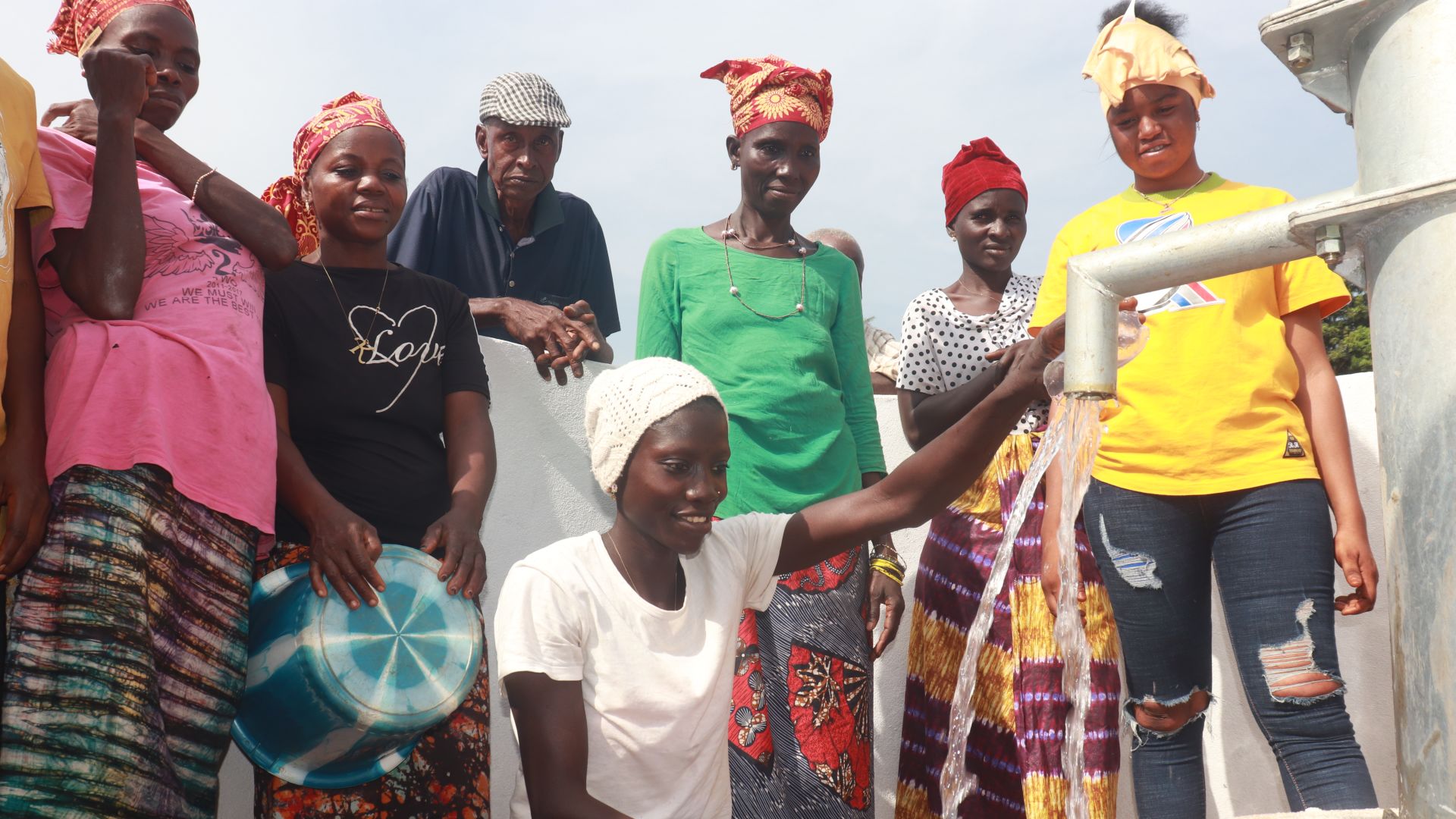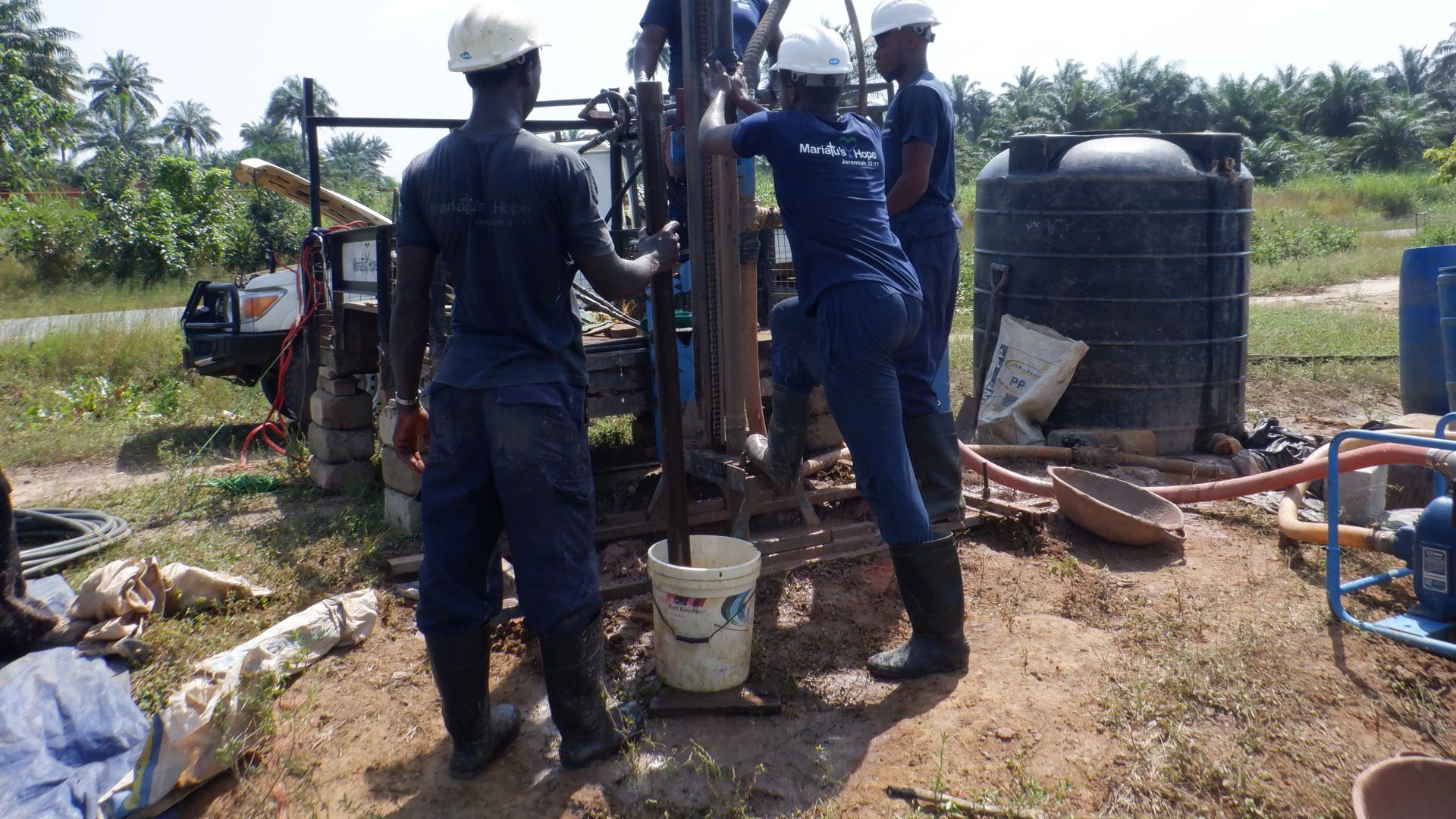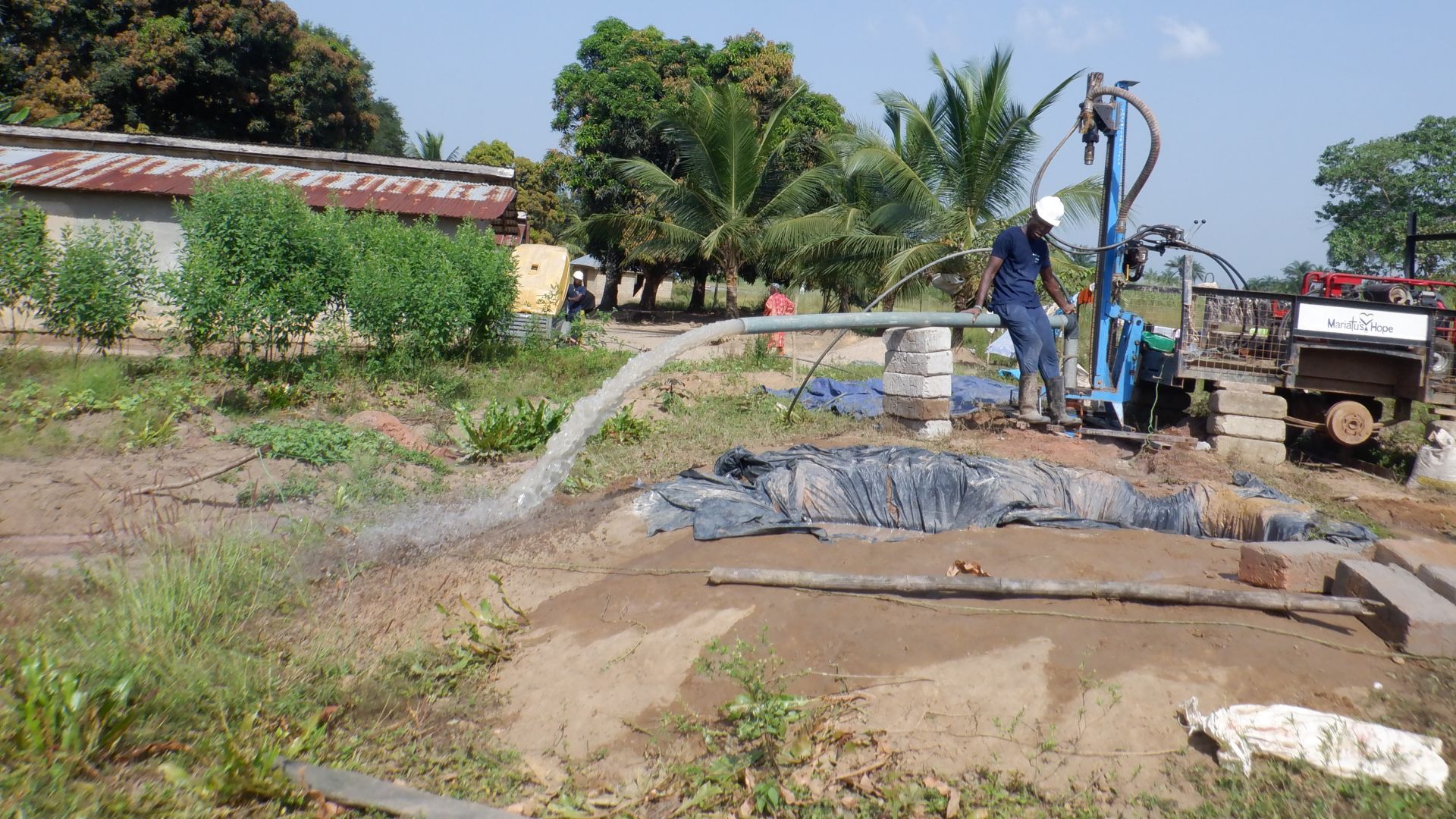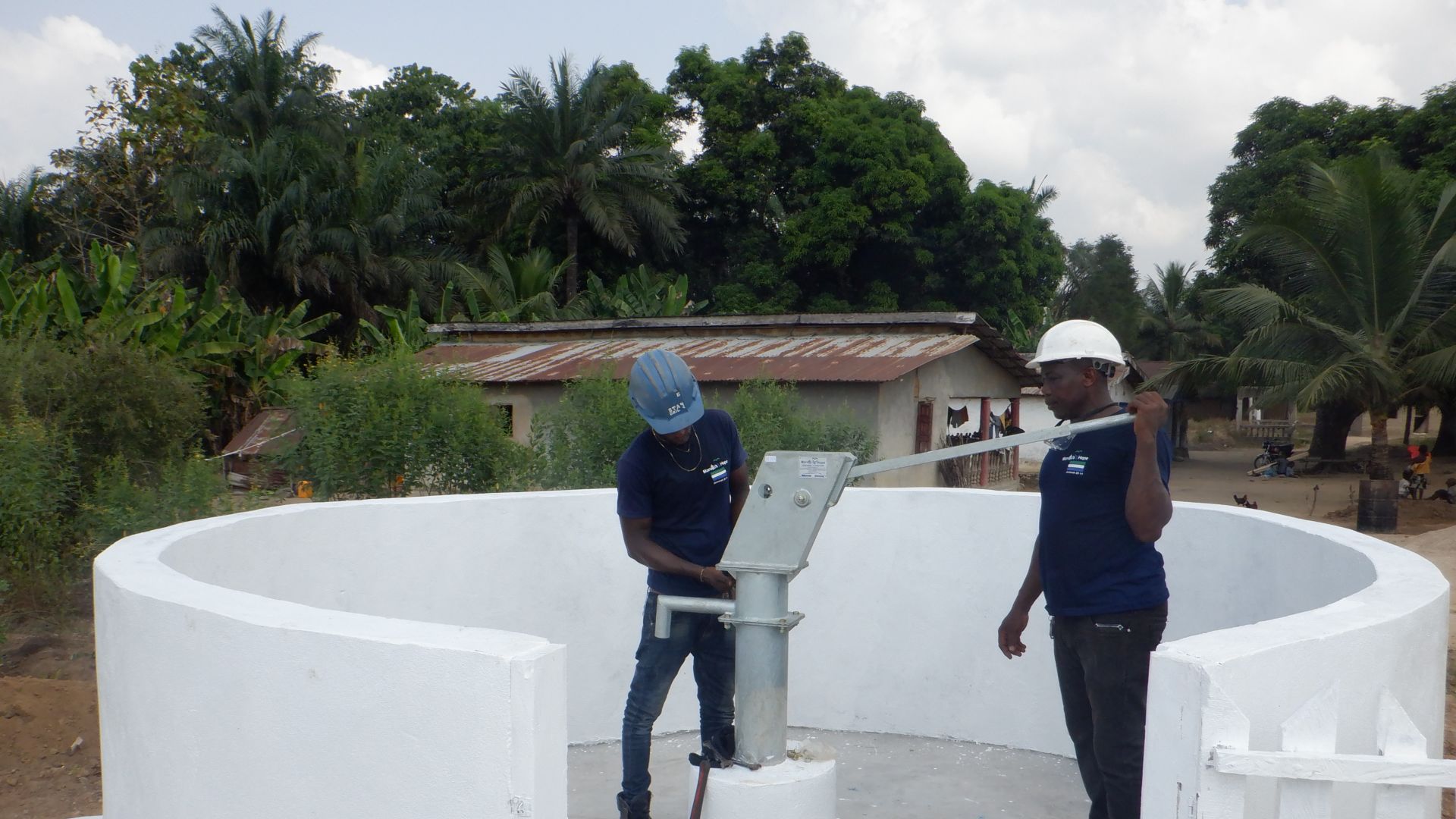The 118 people of the Mayonkolie Community struggle to access sufficient water. Community members rely on a local swamp that is contaminated, seasonal, and far away, making it challenging to collect the water they need to do their daily tasks.
"The water situation affects me greatly in my community. When I wake up early for prayers, I must use water to perform ablution before going to the Masjid. Every day, I must go out to do my business in the morning. Before going for trade, I must wash all my dirty dishes and sweep the compound, then prepare breakfast for my husband. Sometimes, I wake up early in the morning to fetch water at the swamp, and I am always afraid to go to the swamp because it is far from my community. I usually walk [a] far distance to fetch water, and this situation affects me not to make many trips for a day," said 36-year-old trader Isatu Kargbo, shown below at the swamp.

"During the dry season, the swamp water gets low quantity, and at that moment, I will not get enough water at home. The little water I had fetched was not enough to do my domestic work. Sometimes, the water source becomes dirty because other people [have] already fetched water there, but I must fetch the dirty water and then return home. I must allow it to settle or filter before using it. It is difficult for me to fetch clean water in this community, and the water problem affects my business and prayers in the morning. It would limit me not to trade on a daily basis as well [as] to observe my five daily prayers," concluded Isatu.
"I am a student, and I am facing a lot of constraints in terms of water. The water in my community is not safe for drinking, and it is not easy to fetch water there. I must go to the swamp to fetch water, but this source is far from my house. I am always afraid to cross Port Loko Road because vehicles or motorbikes pass at high speeds. Also, the train passes every day; sometimes, when I come across the train, I have to wait until it passes. Also, I must fetch water at home to prepare food for use, but the water problem causes us to get food late because I had to go the extra mile to get water before my mother starts to prepare food. During the weekend, I must go to the stream to launder my clothes, but during the dry season, it would be difficult for me to launder because the swamp goes dry," said 15-year-old Emma K. (shown below).

The people of Mayonkolie need access to a reliable water source that is available whenever they need it. Installation of a well will enable community members to have safe water close to home so they will have the time and energy for their other responsibilities and not have to spend much of their day searching for and collecting water.
The Proposed Solution, Determined Together...
At The Water Project, everyone has a part in conversations and solutions. We operate in transparency, believing it benefits everyone. We expect reliability from one another as well as our water solutions. Everyone involved makes this possible through hard work and dedication.
In a joint discovery process, community members determine their most advantageous water solution alongside our technical experts. Read more specifics about this solution on the What We're Building tab of this project page. Then, community members lend their support by collecting needed construction materials (sometimes for months ahead of time!), providing labor alongside our artisans, sheltering and feeding the builders, and supplying additional resources.
Water Access for Everyone
This water project is one piece in a large puzzle. In Kenya, Sierra Leone, and Uganda, we're working toward complete coverage of reliable, maintained water sources that guarantee public access now and in the future within a 30-minute round trip for each community, household, school, and health center. One day, we hope to report that this has been achieved!
Training on Health, Hygiene & More
With the community's input, we've identified topics where training will increase positive health outcomes at personal, household, and community levels. We'll coordinate with them to find the best training date. Some examples of what we train communities on are:
- Improved hygiene, health, and sanitation habits
- Safe water handling, storage & treatment
- Disease prevention and proper handwashing
- Income-generation
- Community leadership, governance, & election of a water committee
- Operation and maintenance of the water point

 Borehole Well and Hand Pump
Borehole Well and Hand Pump
 Rehabilitation Project
Rehabilitation Project


























